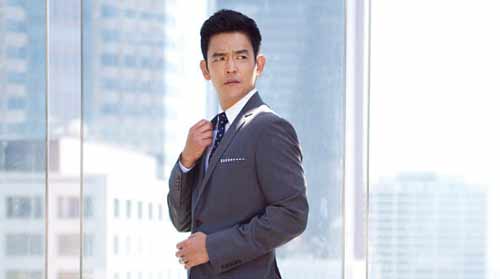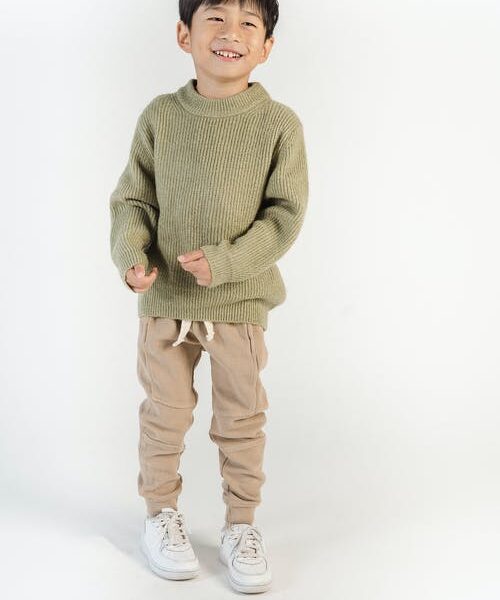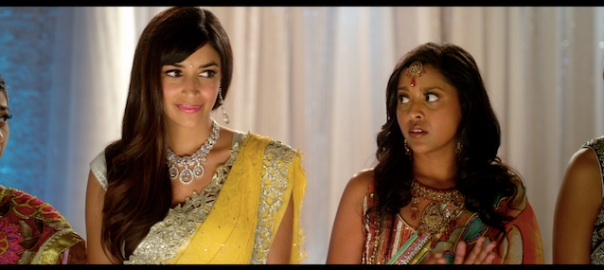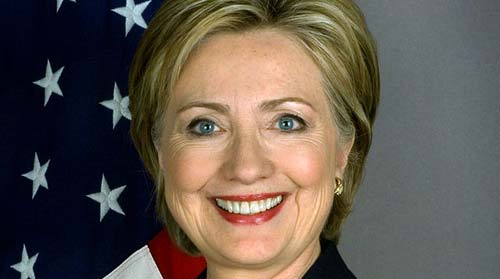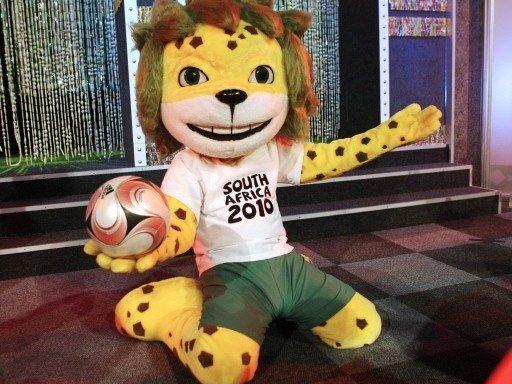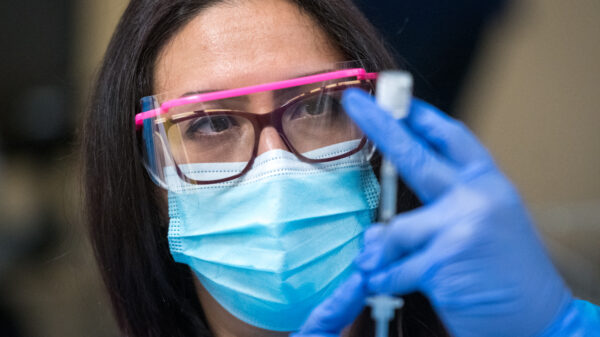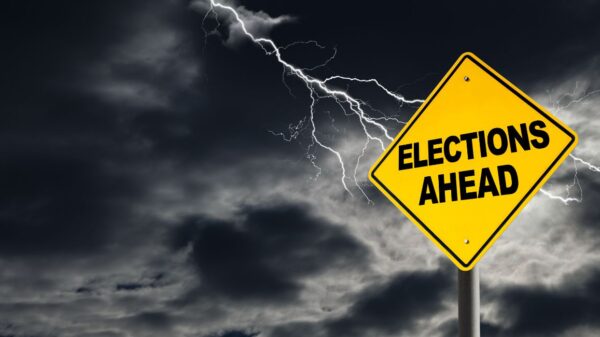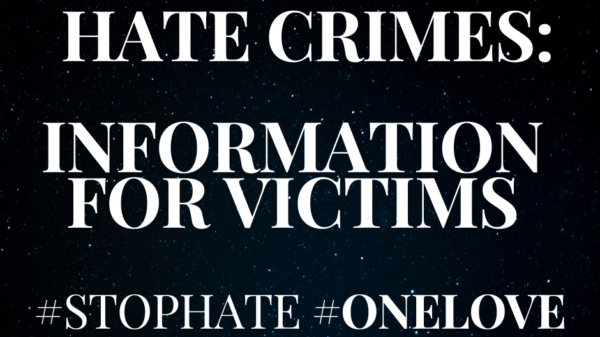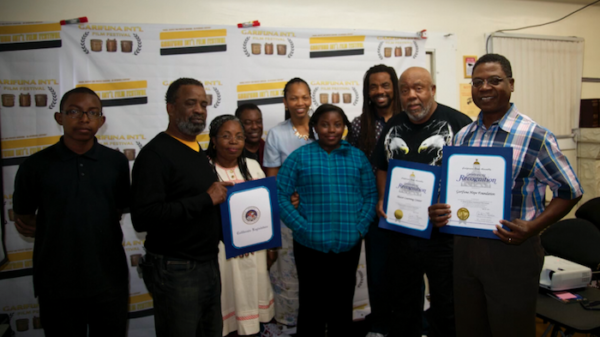John Cho can’t stop raving about how he got to ride a horse for his new TV show Selfie.
“About a month ago, [creator] Emily [Kapnek] came to me and said, ‘We’re writing a storyline where you’re riding a horse. Can you ride a horse?’” remembers Cho. “And I said, ‘I can’t, but you have to keep that in. I’ll learn.’”
Turns out he only needed one lesson to gallantly ride a horse for a scene that’s a play on the familiar knight-inshining- armor trope.
“Apparently, I’m a natural,” he jokes. Why hasn’t anyone asked him to ride a horse before? “That’s a good question!” he says. “Now I get to put it on the resume as a special skill.”
Cho plays Henry to Karen Gillan’s Eliza in ABC’s new half-hour comedy Selfie, which premiered on September 30. The show borrows the premise of the 1964 musical My Fair Lady, based on the 1916 play Pygmalion, transplanting the characters from early-1900s’ status-obsessed England to 2014’s Internet-obsessed America. Selfie’s pilot introduces Eliza Dooley (a nod to Eliza Doolittle) as a social media star with millions of virtual friends but no actual friends. One day, after she is publicly humiliated by a boyfriend whom she didn’t realize was married, she sees a presentation by her co-worker Henry Higgs (shortened from Higgins), who is a talented marketing expert at their pharmaceutical company.
He also happens to hate everything about the wired millennial generation. Convinced she needs to be rebranded, Eliza begs Henry to help her change her image.
Though the Henry character in the film, played by Rex Harrison, looks down on Audrey Hepburn’s Eliza, the Selfie team wanted to make sure their modern Henry was influenced by Eliza just as much as Eliza is “transformed” by him. Though Henry confidently takes on the challenge to make her into a less self-absorbed person, in the process, she also teaches him that all work and no play is no way to live a fulfilling life. (“What’s more irresistible than opposites being thrown together?” says Cho.) Their modern take is less about external behaviors — manners and proper elocution — and more about internal values: learning to empathize and live in the present, instead of being constantly glued to one’s smart phone.
Perhaps because My Fair Lady and Pygmalion take place in England, the character of Henry was originally envisioned as an older English man. However, when the casting directors were having challenges finding the right person for the role, Cho’s name was suggested. (“We looked at tons of different actors, and really, once we kind of opened our minds and said let’s get off of what we think Henry is supposed to be and just talk about who he is — we just need a brilliant actor — and John’s name came up,” Kapnek told The Toronto Star.)
And it turns out there was no reason the 21st-century Henry couldn’t be Korean American.
“John and I actually met at a table read for the first episode of Selfie,” remembers Gillan, well-known to audiences for her roles in Doctor Who and Guardians of the Galaxy. “So in essence, we met in character. As soon as John began to deliver Henry’s lines, everything came to life. He breathed life into the character, and through that, into my character, too. It was really exciting.”
But back to the horse. “The character of Henry has been taking horseriding lessons surreptitiously for three years on the chance that he’d be invited up to his boss’s ranch,” explains Cho. “And he’s frustrated because he’s trying to impress his boss, but he keeps getting thwarted and is unable to show off his equestrian prowess.” He pauses. “But the point of the story is that John Cho got to ride a horse!” He laughs. “In fact, I got a little too obsessed with the horse. I was probably not a good actor that day because I was too excited about the horse.”
For Cho, it was more than the fact that riding a horse was fun. As an Asian American actor in Hollywood — even a successful one whose almost twodecades-long career has spanned indie films (Shopping for Fangs, Better Luck Tomorrow), mainstream comedies (Harold & Kumar, American Pie) and sci-fi classics (Star Trek) — Cho says he doesn’t often get to participate in stories that involve what he calls “American mythology.” He feels that Asian Americans mostly get shut out of Hollywood stories depicting this country’s history, unless they’re Chinese railroad workers or launderers. He racks his brain, trying to think if he’s ever seen an Asian American guy ride a horse on TV before. Though he loves Westerns, he knows it’s unlikely he’d be cast in one.
But never say never. How likely was it that he would become this generation’s Henry Higgins?
At this year’s Television Critics Association Summer Press Tour, as he was promoting the show, Cho called his casting as an Asian American male lead in a romantic comedy TV series “revolutionary,” a word he regrets using in retrospect. It was an offhand comment, but the media ran with it.
He’d rather point people’s attention to the fact that, during the panel, there were many questions about Scottish co-star Gillan having to speak in an American accent, but no questions about them as an interracial couple.
He was surprised, but relieved. Normally, he’d not only be prepared to talk about his race, but also have a strategy to steer away from it, so that his Asian-ness didn’t dominate the conversation, especially for a project like Selfie, which has a multicultural cast, but doesn’t harp on the characters’ ethnic backgrounds. There were only two Asian references in the pilot. The first was about how Henry’s eccentric boss Sam (played by Homeland’s David Harewood) thought it was OK to kiss Henry on the mouth as a greeting because he read an article on the web called “Kissing Koreans: Greenlight!” — which, because it was actually more of a joke about the boss’ inappropriate touching and the fact that the Internet is full of lies, could have easily been a “Kissing Europeans: Greenlight!” joke left over from when they envisioned Henry as British. The second, which eventually got cut and transplanted into a future script, had Henry insisting his friendship with Eliza is completely platonic and joking that a red-headed Korean would definitely make an ugly baby.
Selfie isn’t trying to comment on racial issues in America; it’s aiming to be a clever workplace comedy with a “will-they-or-won’t-they?” couple at the center of the hijinks. And from the outset, it seems like ABC is banking on their new show by Kapnek, who recently helmed the ABC comedy Suburgatory.
Selfie advertisements seem to be everywhere, from eye-catching billboards along major freeways to the cover of the fall TV insert of Los Angeles magazine, to the top of the popular IMDB.com movie database homepage. It also says a great deal that Selfie was given the Tuesday 8 p.m. time slot, the only new ABC show that’s been tasked with leading the day’s prime-time block of programming.
In another marketing move, ABC released the pilot online over a month early to get the buzz going, a strategy that Cho thinks is related to the public’s initial ambivalence over the show’s title. “The word ‘selfie’ has so much baggage,” says Cho. “It’s provocative, which is why I liked it, but the word implies narcissism, so there was a disinclination to like the show. People had to be convinced it was a real show.”
But Cho doesn’t seem worried. “I think the work speaks for itself.”
The Selfie crew is gathered at the Warner Bros. lot in Burbank on a Wednesday morning in September, using Cho and Gillan stand-ins to prepare for the first shot.
In the maze of different sets — the pharmaceutical offices, cubicles, hallway, bathroom and apartment spaces — the production team watching the monitors can’t necessarily see John Cho, but they can hear him. He’s belting out a song in the background before he gets ready to shoot his scene. Cho’s known for being goofy on set. While shooting the pilot, he had Gillan laughing whenever he pulled out his phone and blasted Cyndi Lauper’s “Girls Just Wanna Have Fun.”
Gillan and Cho’s onscreen chemistry is apparent, therefore the tension that arises from keeping their characters apart is irresistible. In the episode they’re shooting, Henry has started dating a very proper, clean-cut “gentlewoman,” as he calls her (a female version of himself played by actress Allison Miller), and Eliza, despite the fact that she has a boy toy of her own, seems to be a little jealous. She’s hurt that Henry didn’t tell her he was dating somebody. In his defense, it just happened 10 minutes ago, he says. But I tell you every single detail about my love life, she argues. A habit I’m desperately trying to break you of, he banters back.
There are certain images in television and movies that we see so often that they border on cliché — girl likes boy, boy likes girl, but they can’t admit it, so they bicker instead and somehow get stuck in the glistening rain together — yet minority actors who are usually relegated to supporting roles don’t often get to play these arcs.
“It’s funny,” says Cho. “I’ve had to do romantic scenes in my career” — he’s been paired with Paula Garces in the Harold & Kumar trilogy and Gabrielle Union in the 2009 ABC science-fiction drama FlashForward —“but by far, they’re the minority of the things that I do. But in life and in movies, I’ve seen it so many times. [Romantic scenes] are in almost everything! So I had a sense of how things should go, what the beats should be, and that’s not informed by what I’ve done as an actor, but what I’ve seen as a viewer. It was new and unfamiliar, but familiar at the same time.”
Back in 2009, in interviews promoting the release of Harold & Kumar Escape from Guantanamo Bay, Cho often talked about the fact that he thinks about the Asian American community with every role he chooses.
Five years later, does this pressure still weigh on him? “When I was first starting out, it was a lot of rejecting stuff,” he says. “Saying ‘I’m not going to do that sh-t, these ching-chongy roles, even though I had no place to be turning things down. In the middle part of my career, I became more aware that people were aware of me — Asian Americans in particular. And sometimes it almost felt like I was bullied, how burdened I was by what Asian Americans might think of me.”
Though Asian America may feel like we have a stake in his career, for better or worse, Cho says it sometimes feels like we have a disproportionate amount of influence on him. With the diverse fan base of both the Harold & Kumar and Star Trek franchises, he finds that the majority of fans that come up to him on the streets are not Asian.
“I’m trying to come at it from a more authentic place,” he says. “Selfie would be an example of me reading the script and thinking, ‘I don’t think I’ve seen an Asian guy in this particular kind of role.’ It personally touched a nerve, and I took delight in it.”
Another unique aspect of Selfie that Cho enjoys is the language, which he calls “a mix of old Hollywood screwball dialogue, meets arcane English, meets hashtag jargon.” In addition to snappy rhythms, rhymes and couplets mixed into the characters’ repartee, Eliza is constantly talking in a mix of LOLs, Internet lingo and pop culture references. (“At the beginning I made a decision Eliza would talk like she’s on a lot of coffee,” says Gillan. “Now I’m regretting that.”) Whereas Henry is more proper, referring to dating as “courting” and feeling the need to airquote Eliza’s suggestion that he needs to “get some,” emphasizing his distaste for casually lewd slang that comes out of his mouth so unnaturally.
“I’ve never had this kind of dialogue in my life,” says Cho, of this elevated language that’s often the domain of theater. “Henry sometimes feels like he was educated abroad, like at a Swiss boarding school.”
Though Cho may be less uptight than his character, he seems to share a similar crankiness about social media.
“Every minute I spend on Twitter feels like a waste of time emotionally,” he says, balking at the idea that increasing one’s Klout score in this day and age may actually be a smart career move. After all, even though Cho, and therefore his character, doesn’t look a day over 30, in real life, one could argue he, at 42, is at least one technological generation over the millennials who talk in OMGs while updating their Instagrams with overfiltered selfies.
The married father of two harkens back to the good ol’ days, when instead of judging quality through Facebook likes and retweets, good criticism was valued “in the way a poet can give voice to how much you love a woman.” He refers to Jonathan Franzen’s condemnation of Facebook as a private hall of flattering mirrors. He brings up Noam Chomsky’s media documentary Manufacturing Consent to explain how “it’s impossible to tell the truth in a two-minute news story, so you start at failure and end at worse failure. And I felt like Twitter was an extreme example of this.”
However, his involvement with Selfie has softened his stance against social media.
“I see young people who are very self-expressive in a way that I couldn’t have even grasped at that age,” says Cho. “I saw an Ariana Grande tweet, where she had typed out some emotions on her iPhone after her grandfather passed away, taken a picture of it, and tweeted it out to her followers. It was so fresh and emotional, a way of sharing a Polaroid of her state at that time. So maybe Twitter is proving me wrong.” He hesitates. “But I don’t know. I can’t go there. I’m a private person. Even interviews are an exercise in avoiding revealing anything about myself that’s real, and I dislike that these are the new rules of fame, that you must reveal more than you wish.”
So, now that he’s tweeting more, how has he reconciled his aversion to social media?
“I haven’t,” he claims, though it seems like he’s found a strategy that works for him. Cho’s Twitter is filled with funny photos that seem to give fans a glimpse into his personal life, but if you look closer, he’s found a way to make jokes while still keeping his social media existence predominantly work-related. His profile photo of him in a beard and twirly mustache is from a Selfie promo that’s yet to air. A photo where he jokes that he’s styling K-pop hair is a wig he’s wearing on the set before it was styled properly. And there’s Gillan’s Ice Bucket Challenge video, where he makes a cameo as an official ice thrower dressed in a Red Power Ranger outfit—“Very important role,” jokes Gillan, “his best one to date” — and further highlights their onscreen appeal to the masses.
And, of course, there’s a Twitpic of Willow, the white steed.
“[John] actually was great with the horse,” Gillan confirms reluctantly. “I audibly gasped when I first saw him riding towards me. It was a sight to behold. But don’t tell him I said that.”
styling by REICHELLE PALO
grooming by SYDNEY ZIBRACK @ The Wall Group

